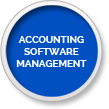
10 Crucial Year-End Closing Procedures for Accounting
Your business’ year-end closing procedures are vital to the success and organization of your company. One of the most important parts of your year-end procedures is closing out the books. You need to start each new year with a clean, fresh slate that is organized and correct and will set you up for success right from the start. Whether you have an in-house accountant or not, some of your year-end accounting procedures will need to be reviewed and taken care of by audit and tax experts. Many companies make significant mistakes throughout the year and while completing year-end procedures, and these mistakes can be very costly in terms of money, time, and overall efficiency of the company. Here are 10 crucial year-end closing procedures for accounting that your accounting team and/or outside accounting experts need to complete.
- Call your auditor and/or tax return preparer to discuss what they expect or need from you for the audit and tax filing process.
- Confirm that all revenues and expenses are recorded in the proper time period under General Accepted Accounting Principles (GAAP).
- Confirm that all approvals, authorizations, and signatures have been documented for necessary items, such as bills, contracts, reimbursements, etc.
- Make any journal entry adjustments as necessary, such as depreciation expenses or new fixed assets.
- Reconcile all bank accounts, credit cards, and money accounts. Make sure balances are equal to year-end statements.
- Confirm that your year-end payroll expenses match up with your monthly payroll taxes in order to prepare the annual IRS Form 940.
- Run a year-end report of your taxable sales and confirm that you have paid all the sales tax required of your company, if applicable.
- Reconcile Federal income taxes paid and State taxes paid, if applicable.
- Prepare fiscal year end trial balance.
- Close out temporary accounts (profit and loss accounts and dividend accounts) to Retained Earnings (or your company’s equity account).
You may think that your tax team is handling the monthly and year-end procedures properly, but you need to ensure that everything is being taken care of in the correct way. The success of your company depends on it. If you have experienced any accounting issues or problems with closing out the books at the end of the year, you need to handle the situation immediately. Unfortunately, accounting mistakes are all too common and happen more often than most businesses care to admit. Some of the most common problems are as follows:
- Only forecasting to year-end, rather than quarterly
- Having too many account codes for profits and loss
- Taking too much time to compile an annual plan
- Reporting on wrong or irrelevant key performance indicators (KPIs)
- Incorrectly reconciling money accounts, payroll expenses, taxable sales, income taxes, and more.
- Incorrectly recording transactions, leading to potential fines/penalties or the closure of a business.
Many of these issues can easily be avoided with accounting expertise and more thorough systems for preparing for a new year and closing out an old year. The best way to handle these accounting shortcomings and others is to hire an accounting expert to review all of your financial information. You absolutely need a qualified and experienced expert to review and handle your monthly procedures, year-end procedures, and any tax and audit preparation that you are required to complete. Contact BOSS today to discuss a plan tailored to your business.






